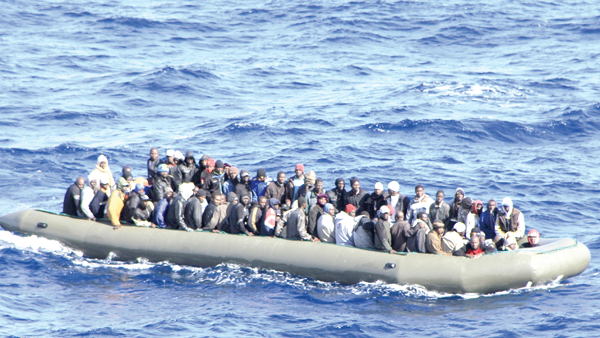
Why the Ghanaian-German centre for jobs, migration and reintegration?
In December 2017, the President of the Federal Republic of Germany, Dr Frank-Walker Steinmeier, and the Minister of Employment and Labour Relations, Mr Ignatius Baffour Awuah, jointly commissioned the Ghanaian-German Centre for Jobs, Migration and Reintegration at the GNAT Heights in Accra.
The centre has a mission to develop, build and implement a model operational office to provide advisory services to migrants, promote regular migration and to support voluntary returnees in social and economic reintegration.
Top migrant countries
According to the 2016 World Bank Group Report, over 250 million representing about 3.4 per cent of the world population leave their countries of birth to seek various economic interests in other countries.
The report revealed the top migrant countries endowed with resources and wealth where people seek economic interest as the United States of America, Saudi Arabia, Germany, Russia, the United Arab Emirates, the United Kingdom, France, Canada, Spain and Australia.
The Ghanaian situation
The Global Migration Data Analysis Centre (GMDAC) and the International Organisation for Migration (IOM) also in a joint publication in 2015, estimated that over one billion people in the world are migrants.
The number goes to show that migration has always been a livelihood and a survival strategy for many across the globe (Awumbilla et al, 2011).
In Ghana, for example, it is estimated that about 5,000 labour migrants are coaxed or coerced to migrate to the Gulf States.
The varied reasons for migration include limited employment, low salaries and a promise of better working and living conditions.
On the contrary, the United States of America’s Trafficking in Persons (TIP) Report, says that the Government of Ghana, has received numerous reports of inhumane treatment meted out to Ghanaians who are recruited for labour purposes, especially domestic workers in the Gulf States.
Abuse
Domestic work is one important sector of employment for migrants but it has been characterised by lots of abuse.
Some reported abuses are passport confiscation, long hours of work, assault and remuneration issues, especially lower payment as against what was agreed in the contract of employment.
Indeed the reports of inhumane treatment, the horrifying narrations of some returnees and other factors compelled President Nana Akufo-Addo to come on air to condemn one of such tragic acts on some Ghanaian citizens in Libya while they were trying to escape economic hardships.
The Government of Ghana, as a matter of urgency, is to streamline and sanitise the IOM space.
The Minister of Employment and Labour Relations, Mr Ignatius Baffour Awuah, on May 31, 2017 made a pronouncement for the temporary suspension of foreign labour migration to the Gulf States.
This laudable initiative rhymes with the United Nations admonishing to all governments to take coordinated and consistent measures to minimise the negative practices in the loop of International Labour Migration.
Significantly, it is recalled that although governments over the years have tried to curtail this irregular migration menace, no hard and fast rules have deterred the adventurous youth from wanting to seek better opportunities elsewhere.
Interventions
It is against this background that a number of interventions are being put in place by the current administration to curtail irregular migration.
Typically, some of the interventions are to grow the Ghanaian economy to open up opportunities for all citizens, especially the youth, who will no longer feel they have to be subjected to inhumane treatment crossing the Sahara and drowning in the Mediterranean Sea.
The opening of the Ghanaian-German Centre is another success story.
The opening is paramount since it comes along with hope and joy not only for the German Government, but more importantly for the Ghanaian migrants in pursuance of collaborative efforts and bilateral cooperation which has yielded this historic project outcome.
Additionally, the centre aims to govern labour migration issues, assist both parties in the cooperation to understand and appreciate the root causes of irregular migration, and also to anchor the already existing relationship with the expectation that the centre will serve the joint purpose for which the parties have committed to a Memorandum of Understanding (MoU).
The centre will further provide services, including supporting returnees with the view to offering them social and occupational reintegration, providing information and advice on vocational training and employment opportunities in Ghana, providing information on options and requirements for legal migration to Germany, as well as informing people about the risk involved in irregular migration and a data base collection hub for migrants that will aid policy direction.
The opening of the Ghanaian- German Centre for Jobs, Migration and Reintegration could not have come at a better time.
It is the hope of the government that this collaborative effort will curtail irregular migration across the globe.
